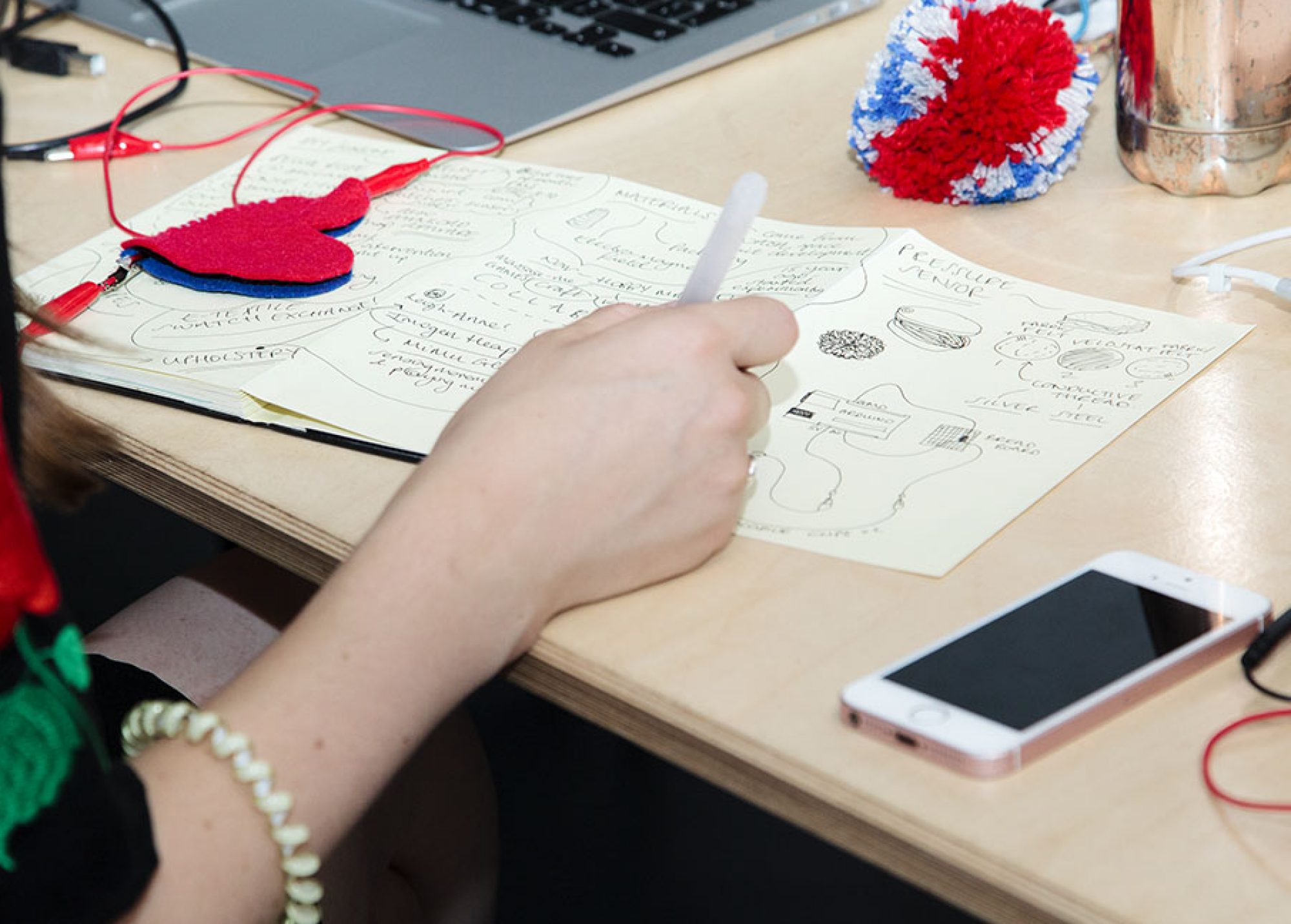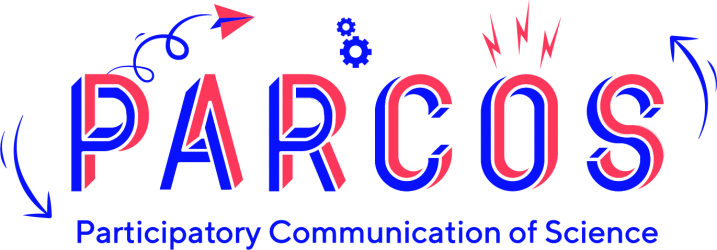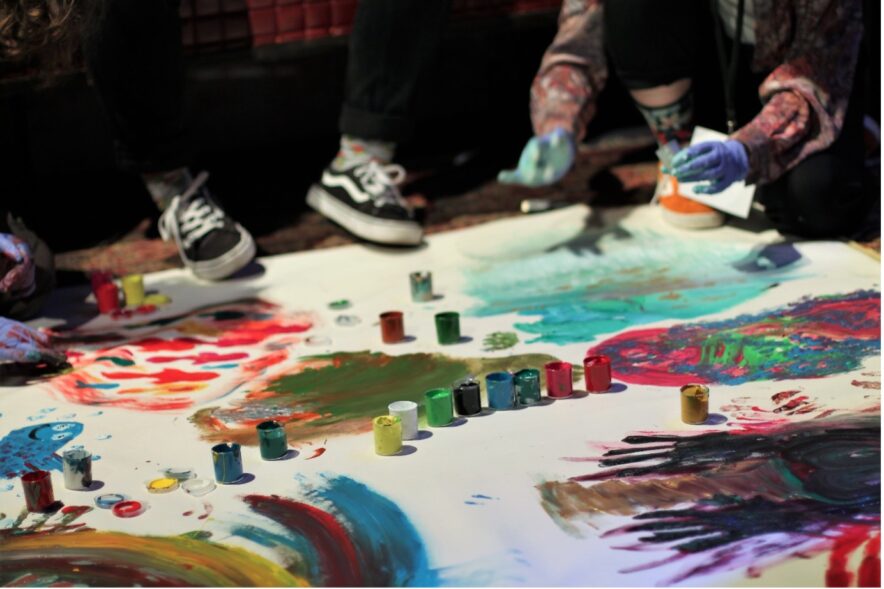On the 8th of September 2021, a number of school students from the Lahti area joined students of Theatrum Olga, Suomen Diakoniaopisto, to take part in a Data Drama experience, which used embodied approaches to data exploration. The purpose of Data Drama is to provide a more-than-human context for people that are not used to working with data. The experience aims to inspire them and make them feel comfortable to engage with data.
Engaging participants with the narrative of mythical character
ParCos partner LUT used data from the local lake Vesijärvi and curated it following the ParCos principles. This led to the creation of interactive data comics – inspired by the work of Bach et al., 2018 – embedded in a narrative that framed the experience for participants. The narrative told that a mythical character called Näkkitär had travelled back in time to the present day, because she needed help to understand why some of the water quality in the lake where she lied was so bad whereas other water was good. She had access to a lot of data about the lake but had no way to make sense of it.
“Näkkitär, here she is, Näkkitär, the all-seeing being who can always sense beyond the present into the future and the past… until now. Nor can she speak directly with the people of the earth. She draws in her watery all-seeing way and needs your help. She has come back from the future and the past, where she travels in Chairos time, in circles not your human chronological ways of straight lines. She has come to 2021 to meet with you – the young of the earth – you who hold all of the hope, to tell you that the reason he wants the lake is because of her. Nakkitär has heard that the young have a new and powerful tool – these numbers that somehow speak about water…the phosporous, this algae, aqautic plants, chlorphyll. This is her chance to bring the two worlds together Chronos and Chairos – opening up new possible worlds.”
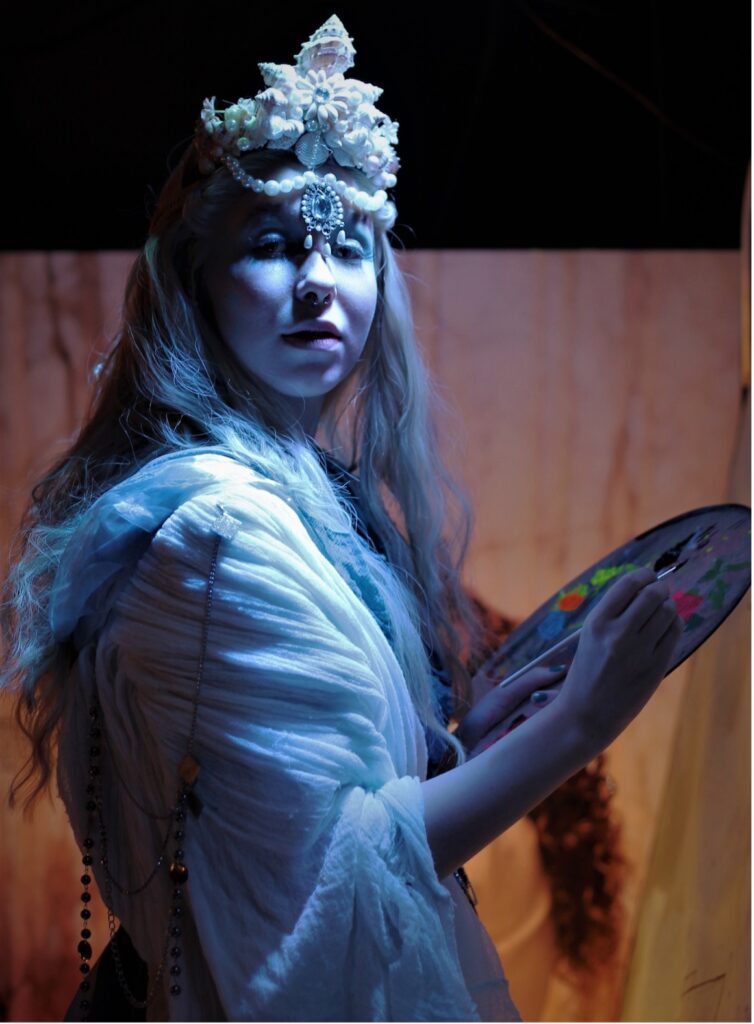
Näkkitär needed the participants to help by understanding the history of the lake and what made the water quality bad and what practices had helped it to improve. They looked back in time to the 1970s and explored the data within each decade up until the current time to see how different actions had changed the water quality. Using what they learned, they started to imagine the possibilities of the future and what could have happened to the lake between the current day and Näkkitär’s future time. As part of this dramaturgical frame, the participants collectively painted to explore and help explain their future imaginings.
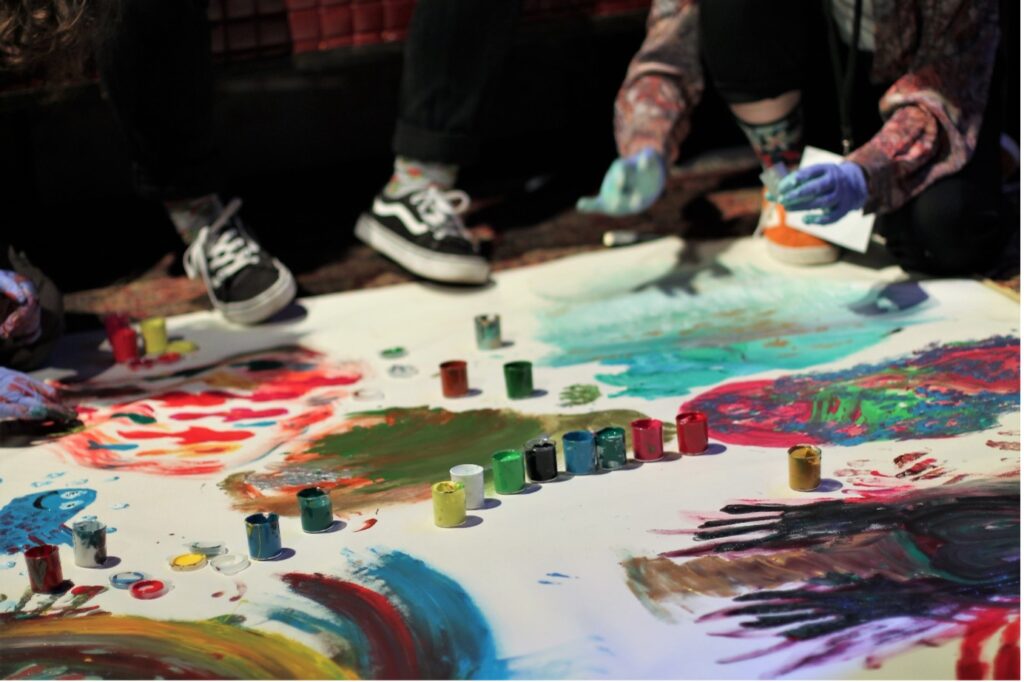
Data Drama to question and interpret presented data
In developing the practices and theoretical conceptualization of Data Drama we are moving towards a critical way of making sense of data. Why is data drama needed? We are manipulated and led by data but are often not aware of it. There is a latent criticality in the arts. When used in certain ways, it can make visible what is not seen. It is often assumed that data is objective, without market-driven or other political interests, claiming it is evidence-driven. As citizens, we should have access to tools that can help interpret and use data ourselves. And question the presentation of it when it is made visible for political reasons. The influence of emancipatory critical educators such as John Dewey (1933/1998) Paulo Freire (1997/ 2000; 1998) is evident here.
Sources:
Bach, B., Wang, Z., Farinella, M., Murray-Rust, D. and Henry Riche, N., 2018, April. Design patterns for data comics. In Proceedings of the 2018 chi conference on human factors in computing systems (pp. 1-12).
Dewey, J. (1933/1998) ‘Analysis of Reflective Thinking: From How We Think’, in L. A.Hickman and T. M. Alexander (eds.) The Essential Dewey, Volume 2: Ethics, Logic, Psychology, pp. 137-144. Bloomington: Indiana University Press.
Freire, P. (1970/2000) Pedagogy of the Oppressed. New York: Continuum.
Freire, P. (1998) Pedagogy of Freedom – Ethics, Democracy, and Civic Courage. Trans. by P. Clarke. Lanham and Oxford: Rowan & Littlefield Publishers.
